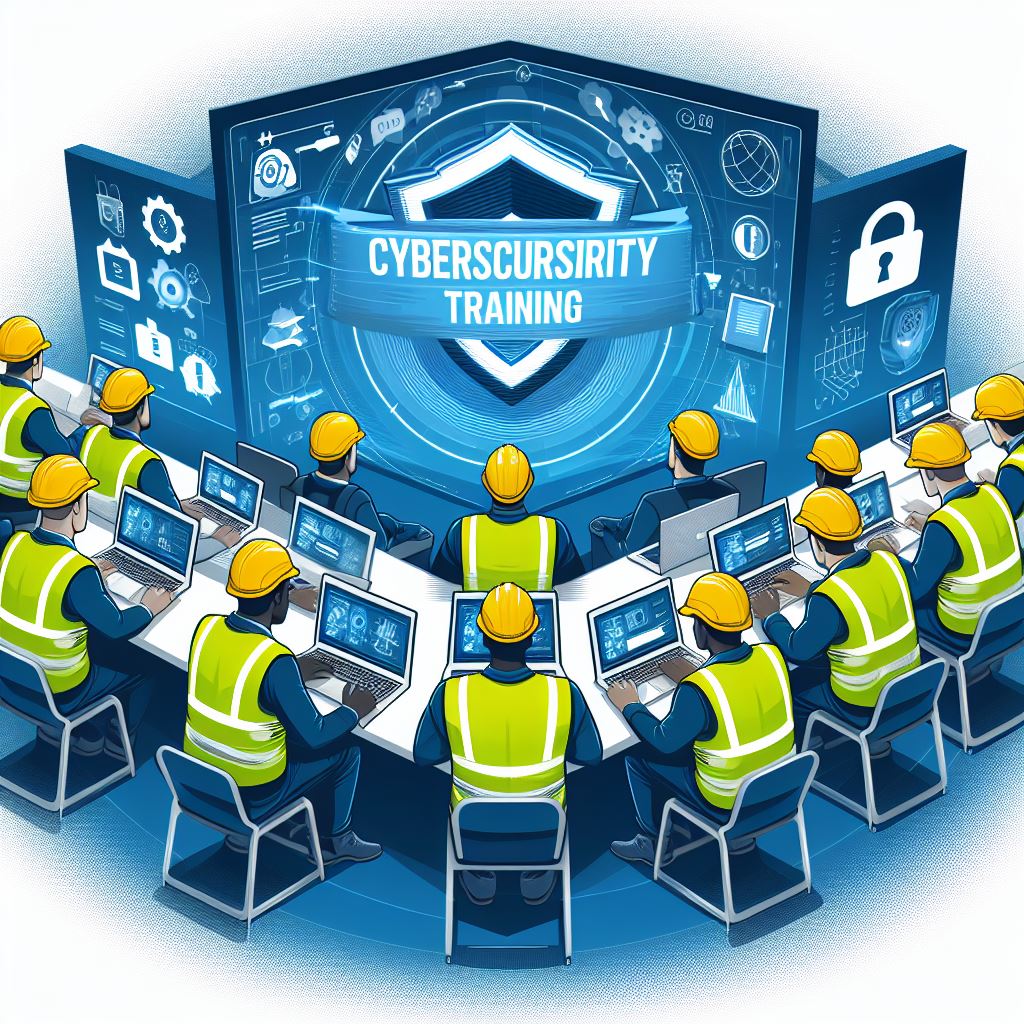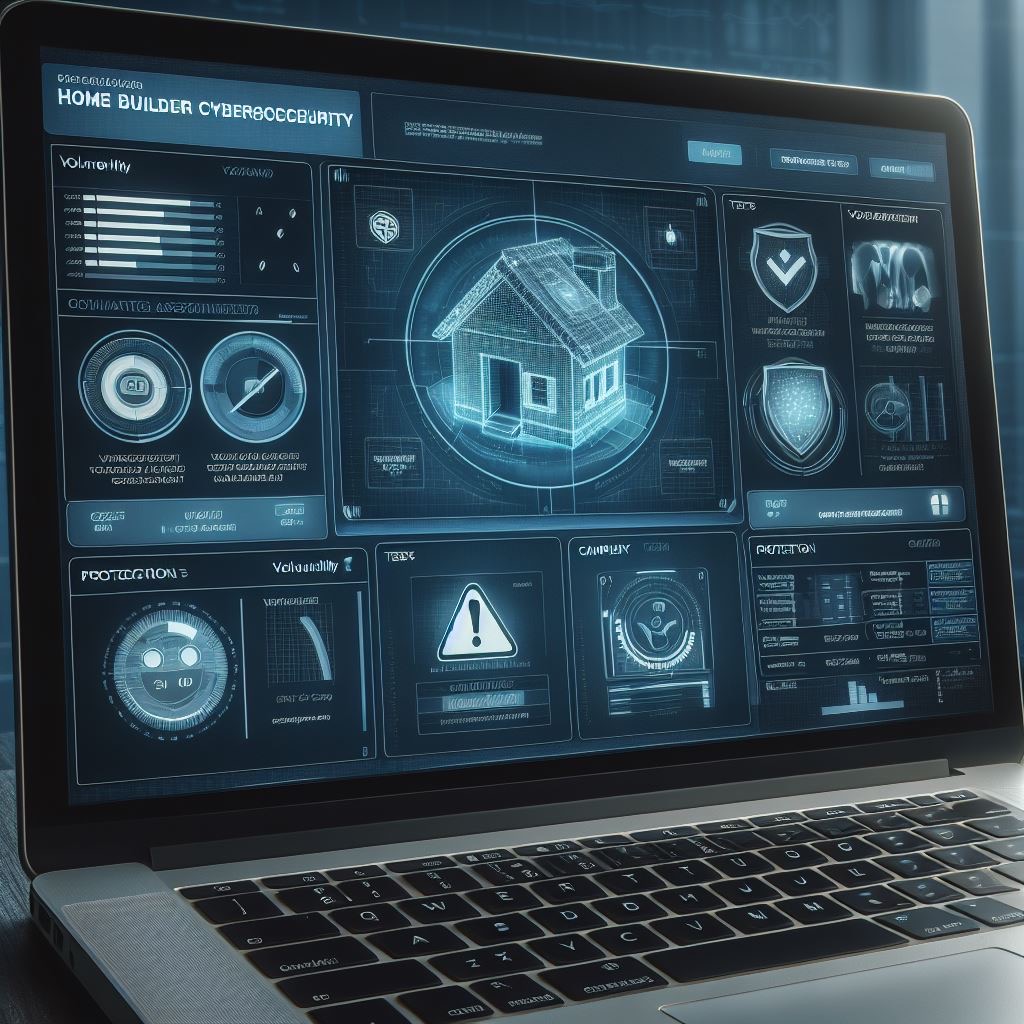
Defying All Odds - Day 20: Incident Response Planning for Construction Companies: A Cybersecurity Approach
“You have to be prepared to fight and finish your own battles.” - Jim Harbaugh
Introduction:
Cybersecurity incidents can occur despite the best preventive measures. Having a well-defined incident response plan is essential for construction companies to minimize the impact of cybersecurity breaches. In this article, we will explore the components of an effective incident response plan for construction companies. From incident detection and containment to communication and recovery, these planning considerations will help construction companies respond swiftly and effectively to cyber incidents, ensuring business continuity and minimizing damage.
In our featured story, we talked about how ZATIS helped a construction company defy the odds and win in the battle against hackers and cybercriminals. Join us today as we discuss the importance of having a cyber incident response plan in a construction company.

Just as a college football team needs a well-planned strategy to respond to unexpected plays, construction companies need a comprehensive incident response plan to tackle cybersecurity breaches. ZATIS, your trusted managed service provider, can guide you in developing and implementing this plan. Let's delve into the critical components of an effective incident response plan.
1. Incident Detection:

The first step is to identify the occurrence of a cybersecurity incident. With ZATIS's 24/7 monitoring services, any abnormal activity or potential breach can be swiftly detected, minimizing the time hackers have to cause damage.
2. Incident Analysis:

Once an incident is detected, it’s crucial to understand its nature and extent. ZATIS's team of cybersecurity experts will analyze the incident, identify the affected systems, and determine the type of threat posed.
3. Incident Containment:

After the incident analysis, the next crucial step is to contain the breach to prevent further damage. Techniques such as isolating affected systems and implementing backup plans are part of ZATIS’s containment strategy.
4. Communication:

Clear and timely communication is key during a cybersecurity incident. ZATIS helps ensure that all stakeholders, including employees, customers, and law enforcement (if necessary), are informed and updated about the incident and the steps being taken to resolve it.
5. Recovery and Restoration:

Once the breach is contained, the focus shifts to restoring and recovering compromised systems. ZATIS's rapid incident response ensures that your business operations can resume as quickly as possible.
6. Post-Incident Review:

After the incident has been resolved, it's vital to review and learn from the experience. ZATIS will help you identify what went wrong, how it was handled, and what improvements can be made to prevent future incidents. Just as our triumphant college team learned from each game, construction companies must learn from every cybersecurity incident. By partnering with ZATIS, you access the expertise and resources necessary to develop a robust incident response plan. This will ensure your company is prepared to face any cybersecurity challenges ahead, minimize potential damage, and swiftly bounce back, just like a championship-winning team. Remember, the goal is not just to play the game, but to emerge victorious. So, plan your moves, strengthen your defenses, and be ready to tackle any cyber threats that come your way. With ZATIS by your side, you are equipped to win this digital game.

The Importance of Proactive Cybersecurity Measures
To mitigate the risks associated with cyber threats, construction companies must adopt a proactive approach to cybersecurity. Implementing robust cybersecurity measures can help protect the company's assets, maintain client trust, and ensure the smooth operation of projects. Here are some key steps that construction companies can take:
1. Employee Education and Training:

Employees are often the first line of defense against cyber threats. Providing comprehensive training on cybersecurity best practices, such as identifying phishing emails and using strong passwords, can significantly reduce the risk of successful attacks.
2. Regular Security Assessments:

Conducting regular security assessments, including vulnerability scanning and penetration testing, can identify potential weaknesses in the company's systems and infrastructure. This allows for timely remediation before cybercriminals can exploit these vulnerabilities.
3. Secure Network Infrastructure:

Implementing robust firewalls, intrusion detection systems, and encryption protocols can help safeguard the company's network infrastructure from unauthorized access and data breaches.
4. Access Control and Authentication:

Implementing strong access control measures, such as multi-factor authentication and role-based access controls, can ensure that only authorized individuals have access to sensitive information.
5. Data Backup and Recovery:

Regularly backing up critical data and implementing a robust disaster recovery plan can help minimize the impact of a cyber-attack and facilitate the restoration of operations.
Conclusion:
In an increasingly digitized world, the construction industry must recognize the importance of cybersecurity and take proactive measures to protect its valuable assets. Neglecting cybersecurity can have severe consequences, including financial losses, reputational damage, project delays, legal and regulatory compliance issues, and loss of intellectual property. By prioritizing cybersecurity and implementing robust measures, construction companies can safeguard their operations, maintain client trust, and ensure their long-term success in an evolving digital landscape.
Want to know if your construction company is at major risk of getting hacked? Click here for a FREE 15-Minute Cyber Consult.

5 Reasons Your Construction Company Needs a Cybersecurity Risk Assessment. 👊
It is important for construction companies to conduct a cybersecurity risk assessment for several reasons:
1. Protection of sensitive data:
Construction companies handle a vast amount of sensitive data, including financial information, project details, client information, and employee records. Conducting a cybersecurity risk assessment helps identify potential vulnerabilities and ensures appropriate safeguards are in place to protect this data from unauthorized access, data breaches, or theft.
2. Mitigating financial losses:
Cyberattacks can result in significant financial losses for construction companies. These losses can stem from data breaches, ransomware attacks, or the disruption of critical systems. By conducting a cybersecurity risk assessment, companies can identify potential weaknesses in their IT infrastructure and take proactive measures to mitigate the financial risks associated with cyber threats.
3. Maintaining business continuity:
A successful cyber-attack can disrupt construction projects, delay timelines, and impact the overall business operations. By conducting a risk assessment, construction companies can identify potential vulnerabilities and implement robust cybersecurity measures to ensure business continuity. This includes having backup systems, disaster recovery plans, and incident response protocols in place.
4. Protecting reputation and client trust:
Construction companies rely on their reputation and client trust to secure new projects and contracts. A cybersecurity breach can undermine trust, damage the company's reputation, and lead to the loss of clients. By conducting a risk assessment and implementing appropriate cybersecurity measures, construction companies can demonstrate their commitment to protecting client data and maintaining a secure operating environment.
5. Compliance with regulations:
Construction companies may be subject to industry-specific regulations and legal requirements regarding data protection and cybersecurity. Conducting a risk assessment helps identify any gaps in compliance and ensures that the company meets the necessary regulatory obligations.
Overall, conducting a cybersecurity risk assessment allows construction companies to proactively identify and address potential vulnerabilities, protect sensitive data, mitigate financial losses, maintain business continuity, protect their reputation, and comply with relevant regulations.
Other resources to help you get started with Cybersecurity
Start your own Cybersecurity initiative:
Here is a quick checklist to get you started with your Cybersecurity initiative. Remember imperfect action beats inaction, get started and keep pushing for progress and awareness with your people.
Update your software
Secure your files
Require passwords
Encrypt devices
Use multi-factor authentication
Protect your wireless network
Make "SMART SECURITY" your business as usual
Require strong passwords
Train all staff
Have a plan
